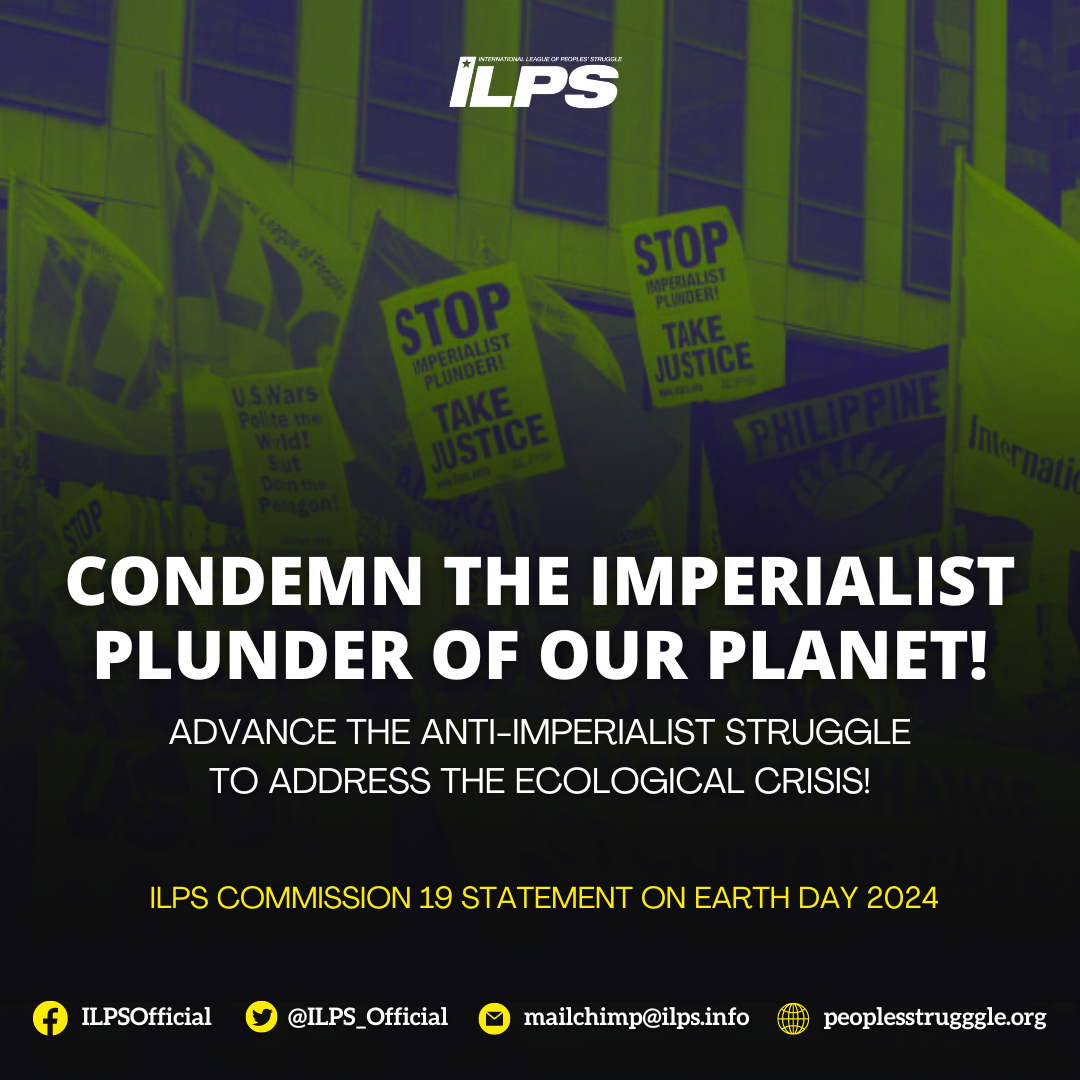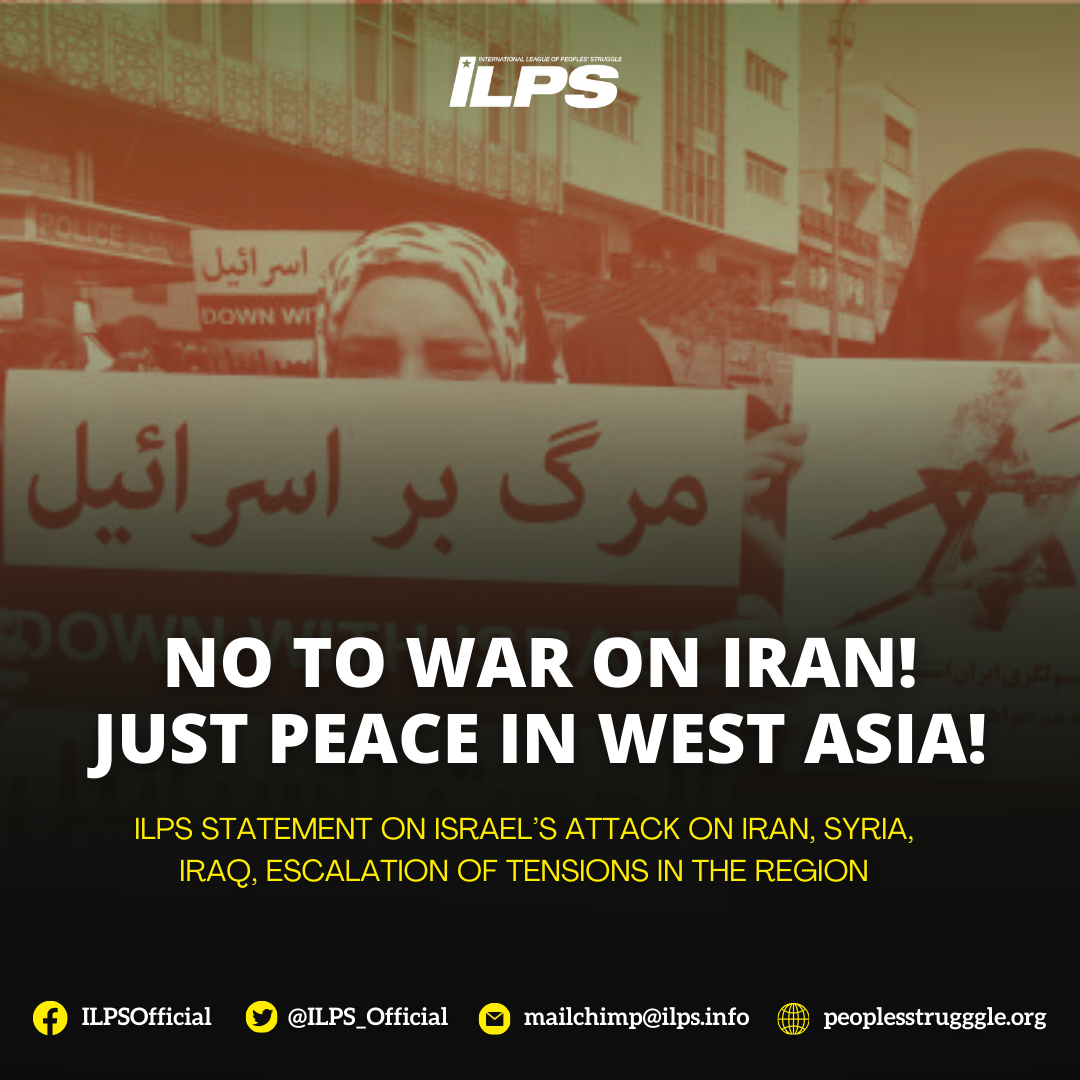The International League of Peoples’ Struggles (ILPS), Commission 4, endorses and supports the call for a global day of protest against the slaughter and neglect of the Yemeni people. There will be actions on the ground in Canada, Sweden, UK, Germany, Italy and the US, as well as a main online forum on January 25.The situation is in acute crisis and utterly deplorable. Anyone with a basic support for human rights and holding a humanitarian view must condemn the attacks on Yemen.
The people of Yemen, coming from one of the poorest countries in the Middle East and North Africa (MENA) are suffering from air raids, death and injury, loss of infrastructure and basic supplies and mass displacement for six years. According to refugee agencies, in a population of 29 million, 13.5 million people are at risk of starvation. Yemeni Union of Agricultural Cooperatives reports that coalition airstrikes have systematically destroyed local food systems by targeting agricultural land, poultry farms, food processing plants, rural markets, fishing boats, and ports. The recounting of cruelties and atrocities faced by the Yemeni people is beyond count. In short, URGENT ACTION is needed to stop this imperialist, unjust war!
According to one of the action day organizers, Stopwar UK::
Since 2015, the Saudi-led bombing and blockade of Yemen have killed tens of thousands of people and devastated the country. The U.N. calls this the largest humanitarian crisis on Earth. Half the country’s people are on the brink of famine, the country has the world’s worst cholera outbreak in modern history, and now Yemen has one of the very worst COVID death rates in the world: it kills 1 in 4 people who test positive. The pandemic, along with withdrawal of aid, is pushing more people into acute hunger (communiqué of Dec. 30, 2020).
It is ironic that almost two years ago, the calls put forward by ILPS in 2019, are still being echoed at the call for united action on January 25, 2021. We affirm and add to the demands put forward:
Ÿ Stop foreign aggression on Yemen, especially targeting of essential food and agriculture infrastructure, including fishing vessels and markets;
Ÿ Stop weapons and war support for Saudi Arabia and the United Arab Emirates;
Ÿ Lift the blockade on Yemen and open all land and seaports free from attack;
Ÿ Restore and expand humanitarian aid for the people of Yemen;
Ÿ Resume payment of salaries to government employees suspended for the last two years and support for the Yemeni Riyal through a professionally managed central bank;
Ÿ Mobilize funds for humanitarian assistance and recovery programmes to help Yemenis to rebuild their millennial systems of food production;
Ÿ Support efforts to build national dialogue and to formulate peace agreement that respects Yemeni sovereignty;
Ÿ Call upon members of the international community, particularly the United States, the United Kingdom, France, Canada, Australia, Spain, Brazil, and Finland, to halt forthwith all arms sales to parties in this conflict;
Ÿ Countries, including Saudi Arabia, the United Arab Emirates, Kuwait, Bahrain, Jordan, Morocco, Egypt, and Sudan must terminate their military engagement and to contribute to a peaceful resolution of the conflict.
The Yemen conflict has been time and again shown as a war maintained by the ‘Houthi rebels.’ The truth is that Saudi Arabia brutally invaded Yemen and was provided intelligence, fuel, and military support from USA, Israel among other allies including NATO and other reactionary states such as Turkey. Human Rights Watch had even as early as 2015 warned that the US might be liable for laws-of-war violations in Yemen due to its continued sales of weapons to Saudi Arabia.
Saudi-backed Abdrabbuh Mansur Hadi took over Yemen after Ali Abdallah resigned in 2014. Intended as an interim government, it overstayed its welcome. The Houthis, who comprise 80% of Yemeni population, did not accept this change as a move towards democracy and forced Hadi’s resignation. Hadi accepted this and moved to Saudi Arabia in 2015 where he was convinced by the Saudis to rescind his resignation, and moved to Aden, calling it Yemen’s temporary capital. Hadi has been backed by a Saudi-led coalition marked by aggressive military intervention in Yemen against the people’s movement struggling for a legitimate representation and democracy.
The US Imperialism has enacted coercive economic measures against Yemen. Saudi-led coalition imposes restrictions on trade and controls the ports in Yemen, putting sanctions on fuel, food, and medicine and other basic essentials. It is a shameful façade that countries such as the US, UK, Germany, Saudi Arabia, and UAE have provided the vast majority of humanitarian assistance to this man-made crisis, yet these are the same countries that are directly or indirectly responsible for the coercive war by supplying arms and military equipment. The coalition-backed government selectively withholds salaries from civil servants, exacerbating Yemen’s liquidity and devaluation crisis. What was to be a seven-day siege has turned into six long years of nightmare for the Yemeni people.
Of course, it is no secret that the war provides a steady stream of customers for the arms trade of profit-seeking imperialist nations. The role of Israel and Turkey can be also be understood in context to their political and hegemonic aims and geopolitical strategy that entails militarization from West Asia to Africa and Central Asia. They have been establishing bases and engaging directly with neighbors such as Greece, Tigray in northern Ethiopia, and Azerbaijan. Israel is a major arms trader doing business with the worst reactionary regimes, even the fascist Modi government of India.
The US is still the leading aggressor and one extending a multi-faceted strategy to defend and sustain the global system of exploitation, domination and plunder. Its ideology and approach has developed since the Cold War to target independent states and independence or democracy movements and nationalization and democratization policies and projects. It has been expanding the territories and waters beyond the North Atlantic by building bases and plowing the waters of all the seas. It has been forming new alliances and cooperative relations with reactionary and terrorist states on all continents and allowing some of them, such as Saudi Arabia, Turkey and Israel, to act as proxy aggressors. While its economy cannot keep up the financial demands of continued, multiple aggressions, the US has been relying on reactionary states to do its dirty work as long as independence, nationalization and democracy projects are kept in check and it maintains its regional market share and influence.
It is always the people who pay the cost of war. The humanitarian crisis in Yemen is extreme and merits a concentrated international campaign to rally concerned and compassionate people together to demand an end to the war.
For information on the global action, go to www.stopwar.org.uk/world-says-no-to-war-on-yemen-25-jan-2021/



